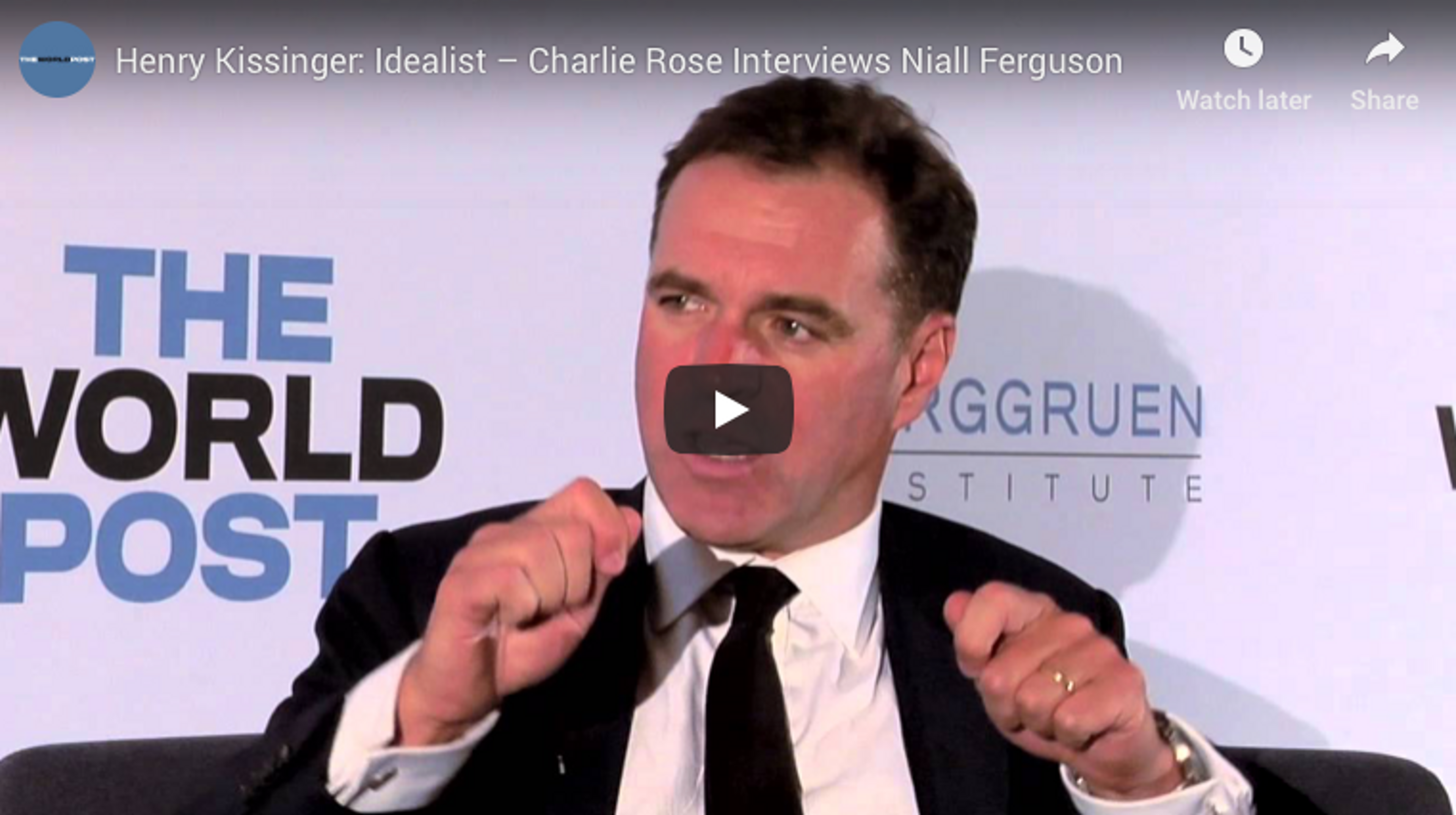Niall Ferguson
Niall Ferguson is the Laurence A. Tisch Professor of History at Harvard University and William Ziegler Professor of Business Administration at Harvard Business School. He is also a Senior Research Fellow at Jesus College, Oxford University, and a Senior Fellow at the Hoover Institution, Stanford University.Born in Glasgow in 1964, he was a Demy at Magdalen College and graduated with First Class Honours in 1985. After two years as a Hanseatic Scholar in Hamburg and Berlin, he took up a Research Fellowship at Christ’s College, Cambridge, in 1989, subsequently moving to a Lectureship at Peterhouse. He returned to Oxford in 1992 to become Fellow and Tutor in Modern History at Jesus College, a post he held until 2000, when he was appointed Professor of Political and Financial History at Oxford. Two years later he left for the United States to take up the Herzog Chair in Financial History at the Stern Business School, New York University, before moving to Harvard in 2004.
His publishing career is an award-winning list historical volumes several of which have been best sellers. These Paper and Iron: Hamburg Business and German Politics in the Era of Inflation 1897-1927 (Cambridge University Press, 1995), Virtual History: Alternatives and Counterfactuals (Macmillan, 1997); The Pity of War: Explaining World War One (Basic Books) and The World’s Banker: The History of the House of Rothschild (Penguin); The Cash Nexus: Money and Power in the Modern World, 1700-2000 (Basic).
Niall is a prolific commentator on contemporary politics and economics and a regular contributor to television and radio on both sides of the Atlantic. He wrote and presented a six-part history of the British Empire for Channel 4, as well as a PBS series Twentieth Century Conflict and the Descent of the West. He writes and reviews regularly for the British and American press. He is a contributing editor for the Financial Times and a regular contributor to Newsweek. In 2004 Time magazine named him as one of the world’s hundred most influential people.
Ferguson was previously a member of the Council for the Future of Europe and The WorldPost Advisory Council.
